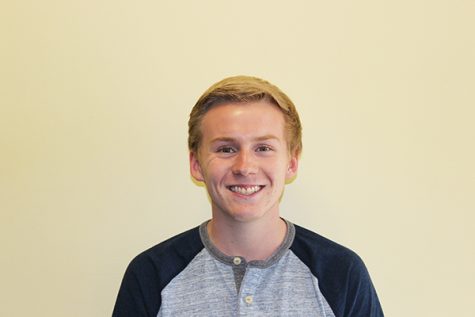Academic leaders to take positions
October 17, 2018
Two Humanities Division professors have taken on the responsibility of chairman positions.
Philosophy professor Derek Leben is now Academic Integrity Review Board chairman, while literature professor Catherine Cox is now the Campus Status Committee chairwoman.
In Leben’s position, he said the chairperson serves as a judge in academic integrity cases.
He said cases are brought to the board, which is made up of seven professors and seven students, if the situation cannot be resolved through a resolution letter.
A resolution letter is when the accused person signs a form saying they did something wrong and won’t do it again.
However, Leben said, depending on the severity of the situation, or if the student is denying any wrongdoing, but the professor has evidence, the case could be brought to the board.
“Then, there will be the hearing.
“My role is to make sure things are running smoothly and the students and professors have the opportunity to be heard,” Leben said.
After the hearing, according to Leben, he oversees the vote and passes along a recommendation to Academic Affairs Vice President Janet Grady and Assistant Academic Affairs Vice President Stephen Kilpatrick.
“(Committee members) are not responsible for making any decisions about the case itself, but passing along a recommendation about the judgment and the case,” Leben said.
Kilpatrick, who served as the board chairman for about two years, said he stepped down because of his role as academic affairs assistant vice president.
However, he said he still has a role in the hearing process.
“I act as an advocate between all parties and as a source of information,” Kilpatrick said.
He also said he thinks Leben is going to do a good job as the board’s chair.
“He’s thorough and has no biases toward a viewpoint,” Kilpatrick said.
Leben said there are only about five or six hearings yearly.
“Most cases, I believe, are handled through a letter of resolution,” he said.
Cox, who was the campus status committee’s vice chair last year, became the chair in September.
Cox said since she previously served as chair, she was able to move into the position.
She said the professor in the vice chair position takes the full year to learn what the chair does, then, the following year, they become the chair.
Cox also said if she had not had previous experience, an emergency election would have taken place to find a chair.
“It’s definitely a learning curve, but it was easy for me to step into it,” Cox said.
She said committee members, who come from all seven divisions, evaluate and vote on faculty who applied for promotion or tenure.
Cox said committee members are elected by division and are either on a one or three-year appointment.
She said the number of faculty from a division depends on the number division faculty.
“It changes yearly,” Cox said.
Cox also said committee members vote on tenure in the fall semester and promotions in the spring semester.
Similar to Leben, Cox also oversees the vote.
Since she has been chairwoman before, Cox said she is going to try to conduct meetings more efficiently.
Cox said, in her experience, during meetings some committee members get impassioned during conversation topics.
“There comes a point where nothing new can be added to the conversation,” Cox said.
Cox also said she doesn’t see any potential problems this year.
“It’s rare that (there’s) a problematic case,” she said.

